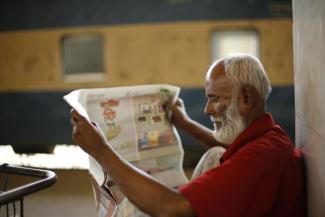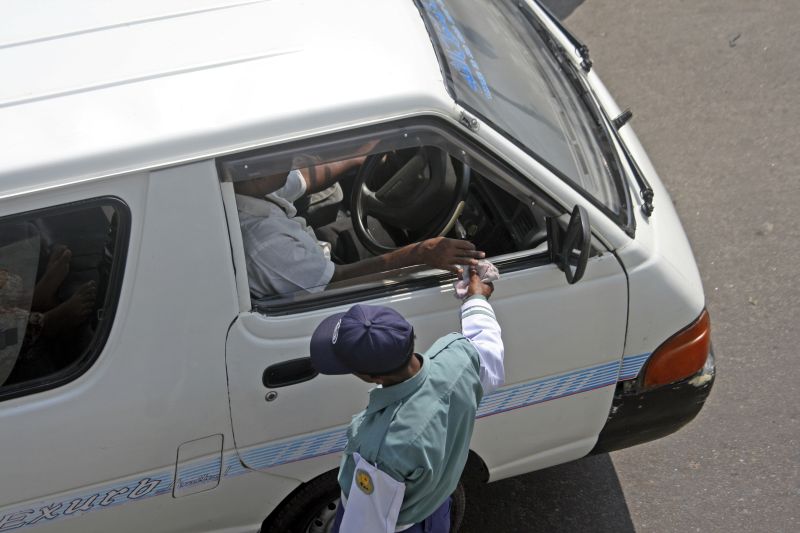Journalism
Media struggle with corruption

In Bangladesh ubiquitous corruption presents a formidable challenge. While the vast majority of the people are victims of corruption, a limited number of powerful individuals misuse entrusted funds and power for private gains. Adding to the problem, institutions to control and prevent corruption are weak and leadership often fails.
Today, Bangladesh’s citizens demand transparency. Officially, good governance and anti-corruption action have high priorities on the development agenda. But although all governments since Bangladesh’s independence in 1971 have promised to establish good governance and eliminate corruption, there has been little progress in improving governance, strengthening accountability and ensuring transparency.
One way to minimise corruption is to raise public awareness. Electronic and print media are crucial in this regard. Manzoor Hasan, advisor to the institute of Governance Studies at BRAC University, says: “The media in general play a very important watchdog role in Bangladesh, raising issues and protecting individuals and causes. They are prominent in promoting good governance.”
The constitution of Bangladesh guarantees press freedom, but also foresees “reasonable restriction”. Libel, sedition and reporting on national security issues are subject to criminal prosecution. Reporters – like other Bangladeshi citizens – can be held for up to 90 days without trial under the 1974 Special Powers Act.
In 2010, the government took a step forward by scrapping a provision that allowed courts to issue arrest warrants for journalists and publishers in defamation cases. Legislative changes, such as the Right to Information Act (2009), seem to demonstrate the commitment of the current government, which is run by the Awami League, to media freedom. However, the government has shut down several media and online outlets, and restrictive proposals for a new media bill rang alarm bells in 2011.
In Bangladesh, there are basically four kinds of media outlets, their purposes being:
- to promote and protect business interests,
- to advance political ideologies,
- to make money by currying favour with important political or business leaders, and finally
- journalism in the sense of distributing serious information.
According to media observers and professionals, only very few outlets belong in the last category. Moreover, everybody wants a piece of the lucrative advertising market, which is reportedly worth more than $ 122 million annually. Thus, media corporations want to be seen as purveyors of reliable and objective information by an increasingly media-savvy public, but they do not necessarily fulfil that claim.
Bangladesh has a tradition of diverse and independent newspapers run by owner-editors who have influenced politics since independence in 1971. Over the past decade, however, large privately owned Bangladeshi corporations have moved into the media market. Most of the national media is now owned by giant corporate groups with roots in other industries, such as real estate, pharmaceuticals, retailing, garments, banking et cetera.
For instance, the leading real estate company, the Bashundhara Group, publishes the Bengali-language dailies Kaler Kantho and Bangladesh Protidin, the English-language Daily Sun and the online BanglaNews24.com. Several of these are large buyers of media advertising, eager to reach an attractive market: the country’s burgeoning middle class.
Some people argue that stiff competition keeps their political preferences in check, and that the need to build and maintain market shares provides a strong incentive to report events honestly and professionally. Others warn that conflicts of interests may arise. Shahidul Alam, founder of Drik, a social-advocacy media group, says: “The mainstream media outlets won’t cover telecom companies in negative ways as that is their main source of revenue.”
However, research shows that objectivity sells better than bias. So news stories need to be covered professionally – regardless of their impact on the image of a particular business or political party.
Under political pressure
Media backed by powerful, politically connected business conglomerates and journalists based in Dhaka are less at risk of being threatened by political leaders than the plenty of lively media outlets and journalists in smaller towns. “Regional media are strongly controlled by local administrations, face physical threats and closure, and although they run many stories on corruption, for example, these are rarely picked up or given priority by the national media,” says Robert Morini, head of press and communications at the British High Commission.
In face of such challenges, Syed Fahim Munaim, the chief executive of Maasranga TV, explains: “Freedom of expression exists, but self-censorship works, especially among those who are pro-government.”
National media outlets are often targeted by incoming governments that perceive political bias in their reporting. New governments tend to exploit what many see as an increasingly politicised judiciary to close down or restrict the operations of media houses they think are supporting the opposition. Journalists who clash with authorities can have their press accreditation withdrawn, and television and radio licences only tend to be issued to those sympathetic to the government of the day.
There is also the phenomenon of “brown-envelope journalism”. Journalists are paid by third parties for articles that promote those parties’ interests. Many journalists do not accept that kind of bribes, but as some media houses simply do not pay good salaries, others depend on this additional source of income.
Rozina Islam is senior reporter of the Bangladeshi newspaper ProthomAlo and one of the winners of the Media Award on Corruption Prevention 2014 (see box below). This contribution may not be reproduced without the explicit permission of the author who reserves her copyright.
islam.rozina@gmail.com








